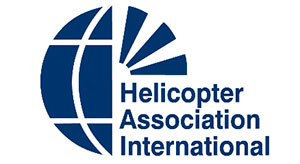
Anaheim Aviation Show to Utilize Biofuel to Reduce Carbon Footprint

To reduce the carbon footprint of HAI HELI-EXPO 2024, Helicopter Association International (HAI) is providing sustainable aviation fuel (SAF) to all aircraft flying into the event. The annual conference and trade show — the largest in the world for the vertical-aviation industry — will take place Feb. 26–29 at the Anaheim Convention Center in Anaheim, CA, with exhibits open Feb. 27–29.
“SAF helps the entire aviation industry meet and exceed our sustainability goals while addressing climate change and energy security,” says James Viola, president and CEO of HAI.
SAF is made from organic materials, such as oils, algae, fats, alcohols, sugars, and captured carbon dioxide. Industry experts report that this sustainable biofuel can reduce greenhouse gas emissions by up to 80% across the fuel’s life cycle. The fuel is approved for use in most aircraft.
HAI HELI-EXPO 2024 will feature more than 50 aircraft on display at the convention center, including 40 helicopters that will be staged from Fullerton Municipal Airport, where HAI will provide the SAF. The aircraft include popular models from helicopter manufacturers such as Airbus, Bell, Leonardo, and Robinson.
Viola indicated that broader adoption of SAF must overcome availability issues and a price differential when compared to Jet A fuel but predicts that aircraft owners and operators will see improvements in both. “As the use of SAF increases, the cost and availability of this environmentally friendly fuel will decrease,” he says. “As more people evaluate the carbon footprint of different modes of travel, it is important to remember that we have green options in aviation.”
The EPA estimates that the aviation industry is responsible for about 9–12% of the greenhouse gas emissions resulting from all U.S. transportation sources.
“HAI is doing what we can to bring down the cost of SAF and increase its use. We recognize the importance of reducing our industry’s impact on the environment,” Viola says. “Some aviation customers or clients will prefer using operators who utilize SAF as it upholds their corporate values or permits them to report a reduced environmental impact.”
